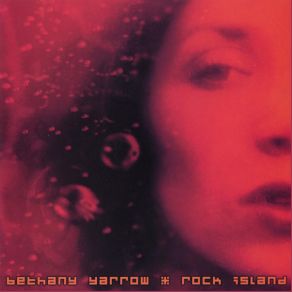Rock Island
Download links and information about Rock Island by Bethany Yarrow. This album was released in 2003 and it belongs to Electronica, Rock, Folk Rock, Indie Rock, World Music, Pop, Alternative, Songwriter/Lyricist, Psychedelic genres. It contains 12 tracks with total duration of 41:17 minutes.

|
|
|---|---|
| Artist: | Bethany Yarrow |
| Release date: | 2003 |
| Genre: | Electronica, Rock, Folk Rock, Indie Rock, World Music, Pop, Alternative, Songwriter/Lyricist, Psychedelic |
| Tracks: | 12 |
| Duration: | 41:17 |
| Buy it NOW at: | |
| Buy on iTunes $9.99 | |
Tracks
[Edit]| No. | Title | Length |
|---|---|---|
| 1. | Black Is the Color | 3:59 |
| 2. | Pretty Polly | 4:15 |
| 3. | Rock Island Line | 4:00 |
| 4. | The Swallow | 4:07 |
| 5. | No More | 1:14 |
| 6. | Another Man | 2:47 |
| 7. | One True Love | 2:52 |
| 8. | The Cruel War | 3:26 |
| 9. | Pretty Horses | 4:05 |
| 10. | Oh Baby | 4:27 |
| 11. | Swallow Reprise | 1:31 |
| 12. | Come to Me | 4:34 |
Details
[Edit]Apart from the obvious pedigree of being Peter Yarrow's (Peter, Paul & Mary) daughter, Bethany Yarrow is extending the depth and breadth of "folk" music. Given Carl Sandburg's "music of the folk" definition, Yarrow's ultra-modern musical argument on the album Rock Island is a convincing one. She re-articulates, revises, reshapes, and remodels folk music in the image of today's "folk" styles — through the sounds, dynamics, and textures of the people's vernacular given the way music is heard and experienced today. In so doing, she is closer in feel and intent to the historic "folk" traditions than many folk revivalists who claim to read some of these same songs through rarefied ideologies. Yarrow paints the hallowed pearls of Celtic and American song lore with huge rhythms, samples, taut melodies, crunching basslines, snaky guitars, and seductive, hypnotic loops. This is not some gimmicky attempt to fuse tradition and technology. One has to consider that Ms. Yarrow grew up with these songs as part of her everyday life; she offers a hearing in how they transcend time and context, how they seem to inform the current age from their ghostly presences in the collective historical past, and how they communicate their metaphorical truth as relevant in any age. Accompanied by producer Kevin Salem — who also plays guitar — bassist Jonathan Maron, and a host of musicians who include Matt Darriau, Knox Chandler, Rufus Cappadocia, and at least a dozen others, Ms. Yarrow builds an archway through a glass darkly — through, and to — other eras, via her time machine musicology
Ms. Yarrow's reshaping and rewriting of the Celtic traditional song "Black Is the Color" features slippery drums, and a pair of basses colored by elusive keyboards; they shimmer and skate around the center of her vocal as Salem's swirling slide guitar colors the verses with spooky fills. The sense of longing projected here is paramount, when the crunching crescendo falls like thunder in the refrain, it reveals that wanton desire is the color of the cup that runneth over. There are taboos that get celebrated here, as Ms. Yarrow is nothing if not political, and addresses issues of race and class throughout the set. The murder ballad "Pretty Polly," is lacerated with samples of a fire-and-brimstone gospel preacher just under a tranced-out, dub-heavy rhythm. A poltergeist banjo slithers along in the backdrop, pacing it slowly, and a soprano slides in and out of the mix like an uninvited guest. The tension and feel of suffocating dread permeates the track. No longer a fable, it becomes a near slice of life portraying violence against women. The title track, a version of "Rock Island Line," features a backbone slipping, hip-hop rhythm, Chandler's ethereal dulcimer, and the sample of Leadbelly wafting though the proceedings. Yarrow's singing, with its bluesy-gospel and rockabilly inflections, echoes the bluesy 1957 Johnny Cash version — albeit in a more sultry, steamy manner — it seems to bubble up from the swamp. From the out-of-the-ether mournful determination at the heart of "No More," to the punched-up house and chanting refrain of "Another Man," with Amy Helm's moaning backing vocal, to Yarrow's original "Come to Me," that closes the shop, the effect is the same: This is music that carries its messages and metaphorical contexts through the centuries and decades — into the heart of our fractured era — and attempts to weave voices, ancient to future, together in defiance to what would separate and fragment them. Rock Island fulfills the promise of great folk music: it seeks to foster the commonality and truth of shared experience — of the song to be sure, but also of cultures thrown together in a confusing, bewildering time.